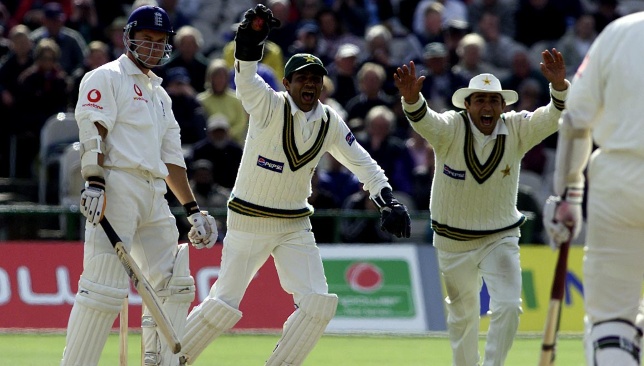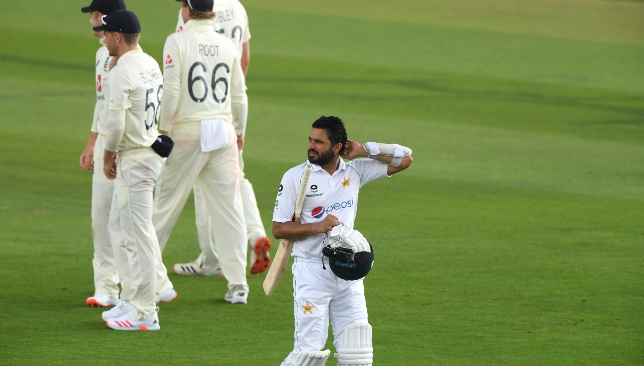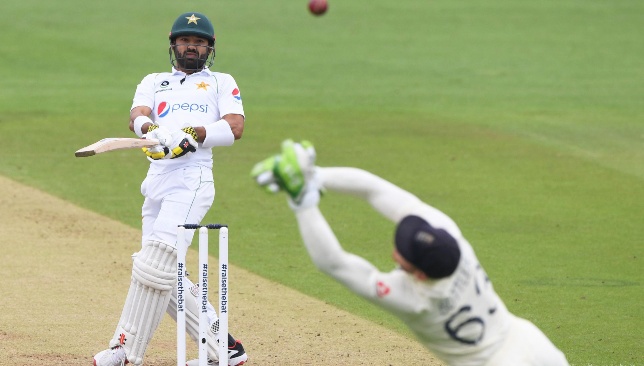
The world has been emerging from lockdown, and cricket has been no exception. Thanks to the England and Wales Cricket Board, the international game was able to return in England – albeit at a limited capacity and with a few restrictions that in the larger context are neither here nor there. West Indies successfully played three Tests to great acclaim, now Pakistan are hoping to do the same.
The visitors lost the First Test at a shutdown Old Trafford by a narrow margin – a game they should have comfortably won, would have won if it had not been for their own poor second innings batting and the incredible resilience of Chris Woakes and Jos Buttler. The Second Test in Southampton squelched its way to a bore draw thanks to a more traditional English summer hurdle – the weather.
I spoke with former Pakistan wicketkeeper and captain Rashid Latif – who toured England in 1992, 1996 and 2001 – on the intricacies of touring, team selection and keeping in different conditions.
AM: How would you rate this current Pakistan side and its chances in the series?
RL: They are a young side with some experience. They have a lot of potential and have put up a good fight against England in some difficult conditions.
AM: After the defeat in the First Test at Old Trafford, and a draw in the second can they make a comeback to level the series?
RL: The Second Test has been decided by the weather. Obviously, no chance of them winning the series from here, yet a very viable chance for them to still get a good result in the last Test and hopefully draw the series – weather permitting of course, as it is at the same ground.

To win, the coaching staff will have to implement the correct strategies that will help the side. The weather has been a hindrance, though this shouldn’t deter the players from performing. They should be able to adapt.
Azhar Ali, Asad Shafiq and Fawad Alam need to perform well in the middle. If you’re going to play six batsmen, then you’re putting the bowlers under pressure if you don’t post a large score on the board. If these three players show some fight, then it’s not beyond the realms of possibility. Not everything should be on Babar [Azam]’s young shoulders – otherwise this will affect his performance.
AM: Since the retirements of Misbah Ul Haq and Younis Khan, why haven’t the likes of Azhar and Shafiq stepped up?
RL: Since those two retired, we have played around 20 test matches. Azhar’s performance has been woeful, Shafiq at best reasonable. They are both names in cricket, yet their performances have not lived up to their reputations. They haven’t been able to cope with the load given to them. Azhar used to play as an opener and Shafiq at 6. In Azhar’s last Test with Misbah and Younis, against the West indies, he scored 135 as an opener. Shafiq has moved up to 5.
The instability has affected both of their respective forms. We have also gone into quite a few series since with only five specialist batsmen – when in reality we should have opted for six. We should have had two middle-order batsmen when in fact we’ve only been utilising the one. They’ve both been messed around in the batting order which in turn has affected their form. Also not having a specialist batsman at 6 to balance the middle order. Due to this their confidence has been shattered, something they will overcome.
AM: Why are Pakistan so poor in Australia and South Africa – in the last year they have lost to both sides – is there some kind of mental block?
RL: In Pakistan cricket is played on tracks with low bounce, the pitches are also quite grassy. Hence we’re quite comfortable playing in England and New Zealand. The bounce in Australia and SA is fast and high, we don’t pick specialist batsmen who are good at pulling or cutting. Our players like to drive off the front foot, which is something that’s not applicable there. I once picked Yasir Hameed for these types of track, because he was a good cutter and puller of the ball. Horses for courses, so to speak.
The PCB needs to prepare for such tours by producing similar wickets. It’s not beyond their capabilities, yet they don’t, and Pakistan always return asking more questions of themselves.
AM: What are difficulties a wicketkeeper will face in alien conditions? How would one adapt?
RL: Subcontinent keepers seem to adapt more comfortably. We know where it’s going to spin, how high or low the bounce is. Takes us about 10 overs. Even when it’s reversing or seaming, most keepers are able to adjust. Though we’ve noticed that keepers from England or Australia tend to have difficulty in reading the spin or the low bounce in our conditions, where we are able to adapt quite sufficiently to theirs.

AM: Mohammed Rizwan has been brilliant behind the stumps in both Tests so far, as well as very handy with the bat. Do you see him as Pakistan’s long term pick after the departure of Sarfraz Ahmed?
RL: Look he is performing well at both domestic and international level, has scored plenty for Pakistan A, and is a very important team member. I would say he is definitely Pakistan’s red-ball gloveman, though I’m not sure that he’s the first choice for the limited-overs format.
We also have Rohail Nazir coming through the ranks. He’s more of a batsman who needs to also focus on his keeping. In the modern game you see batsmen/keepers, for example Buttler. He is predominantly a batsman – he dropped Shan Masood on 45 in the first Test, that cost them. You can’t afford to drop catches at this level, so equal emphasis should be applied to keeping as on batting. That is paramount. One dropped catch is one too many.
AM: With the current rules on coming off for rain and light affecting the outcome of the Second Test, should the ICC look at revising these rules?
RL: I don’t think anything substantial should change. For one it’s logistically impossible, especially when major broadcasters are involved. In the short term, they will obviously have to do something, maybe starting early is a viable option, and also play an extra hour at the end of the day to compensate for lost time, gaining two hours a day.
Pakistan have sacrificed time and health to be here, the last thing they want to be doing is sitting in their hotel rooms.